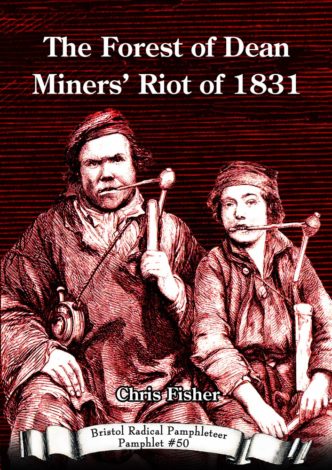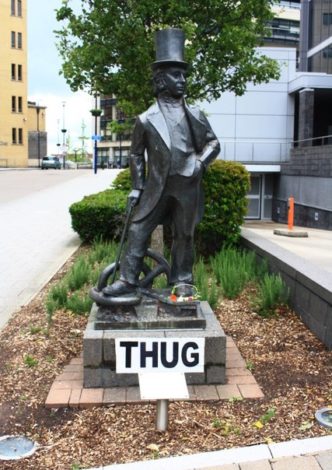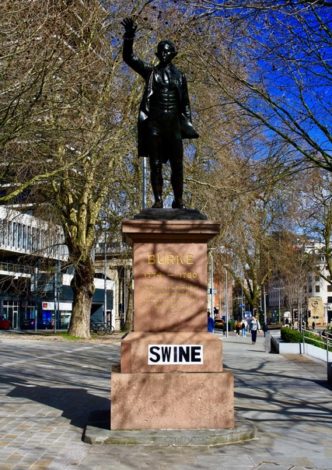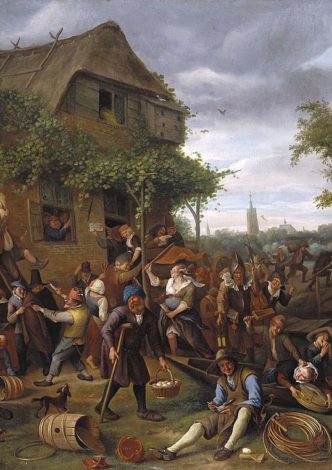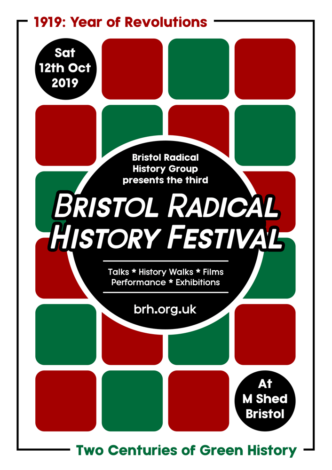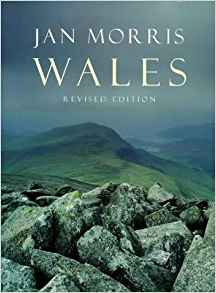In June 1831, the free miners and commoners of the Forest of Dean rioted. This book considers the background to the uprising and the motives of the participants. Chris Fisher contends that the uprising was a clear expression of considerable and justifiable resentment towards the state and capitalists as they encroached on the customary rights of free miners. The Forest of Dean Miners’ Riot of 1831 places the events in the context of a social and economic transformation which favoured private […]
In the cabinet in M-Shed dedicated to the Reform Act uprising of 1831 are displayed two objects roughly tubular and of similar length that represent the extent of the uprising and the brutality with which it was put down. One is an arm bone that belonged to one of those who died when the Customs House in Queens Square was liberated and then torched. Peter MacDonald in his book ‘Hotheads and Heroes’ described the scene thus: just as the roof fell in a man toppled out of the end window and crashed […]
Not far from Queen’s Square stands the statue of Edmund Burke. Had he lived to witness the 1831 Reform Act uprising and a protestor astride the statue of one of his beloved royals all his anti-democratic bile that led him to write his Reflections on the Revolution in France would have been reinforced. It was in that book that he wrote: Along with the natural protectors and guardians, learning will be cast into the mire and trodden down under the hoofs of a swinish multitude Now as the Saint-Just […]
The phrase “the moral economy” was first used by E. P. Thompson, within the essay of the same name. He explained it as was part of a long change in economic and community relations. As Britain industrialised at speed, there was a change from a paternalistic rural economy, to a free market guided by the ideology of Adam Smith. The moral economy related to part of the resistance from the labouring poor during these economic and social upheavals. This was community based, with a crowd of people […]
“We want out” - Bristol and the British armed forces strikes of January 1919 Roger Ball The massive wave of discontent which swept through the British armed forces at the end of World War One remains a hidden history, hardly mentioned by establishment historians or regimental records. Beginning first in France and Belgium in December 1918 and then crossing to mainland Britain the following month, strikes and protests spread rapidly through the Army, Navy and even into the Flying Corps. The […]
 Not A BRHG Event
Not A BRHG Event
This talk is part of the above event at Cardiff Museum, The Old Library, The Hayes, Cardiff CF10 1BH In 2006, The Guardian newspaper ran a series of articles in a search “for the most overlooked moment in British radical history”. The 1831 ‘Bristol riot’ featured in the top ten because of its historical obscurity, somewhat surprising considering the scale of the destruction and the human cost. The reason for this obscurity is related to the pathologized characterisation of the event as the […]
‘Wild Scenes at Cardiff’ reads the South Wales Echo headline; ‘Blacks Hunted By a Furious Mob’ in the South Wales News. In June 1919, Cardiff was the scene of four days and nights of violent unrest that left three dead, many in hospital, and buildings ransacked and burned by mobs that included soldiers and sailors in uniform, ex-servicemen and women, united in the pursuit of black seamen. Who were these rioters and why they were ‘furious’? Who were their victims? Who did what, when and where? […]
The eighteenth and nineteenth centuries witnessed widespread attempts to ‘privatise’ rural England. By enclosing common land and extinguishing customary rights, rural elites sought to physically reshape and culturally redefine the countryside. In counties such as Somerset and Dorset, labourers increasingly found themselves barred from entering the fields and woodland that had supported their families for generations. Meanwhile, those who attempted to voice their concerns regarding these changes […]
 Not A BRHG Event
Not A BRHG Event
Time Stood Still: The Internment of Civilians at Lofthouse Park Camp near Wakefield, 1914-18 Claudia Sternberg talks about Lofthouse Park Camp which held nearly 3,000 German and Austrian-Hungarian civilian and military prisoners during the First World War and was in use until the last officers left Yorkshire in December 1919. This talk focuses on the experience of the civilian internees and shares some of the official and personal stories that were brought to light in the collaborative British […]
Clevedon-born author and historian Jan Morris describes herself as ‘by loyalty Welsh’, and writes about her subject with warmth and eloquence. As a book that captures the spirit of place, Wales: Epic Views of a Small Country, cannot be bettered. Morris gives a brusque sense of intimacy so that you feel you’ve been grabbed by the arm and are being led across the bridges and down the valleys of Wales in your wellies, while she confides everything that she is passionate about. Far from being a dry […]
